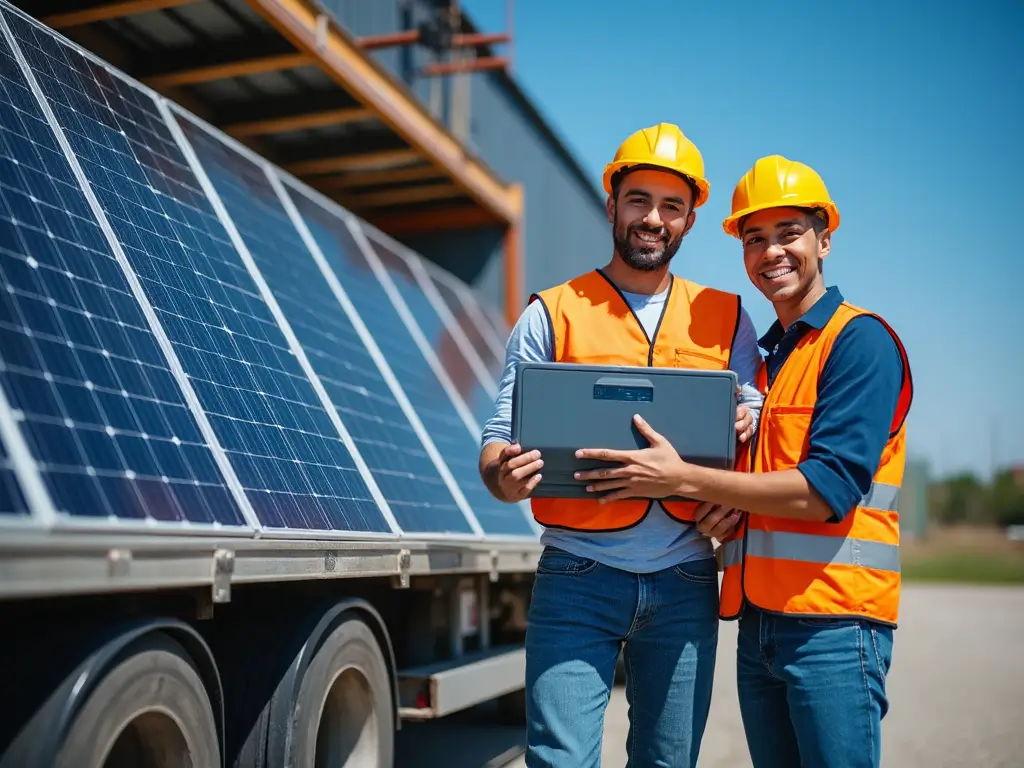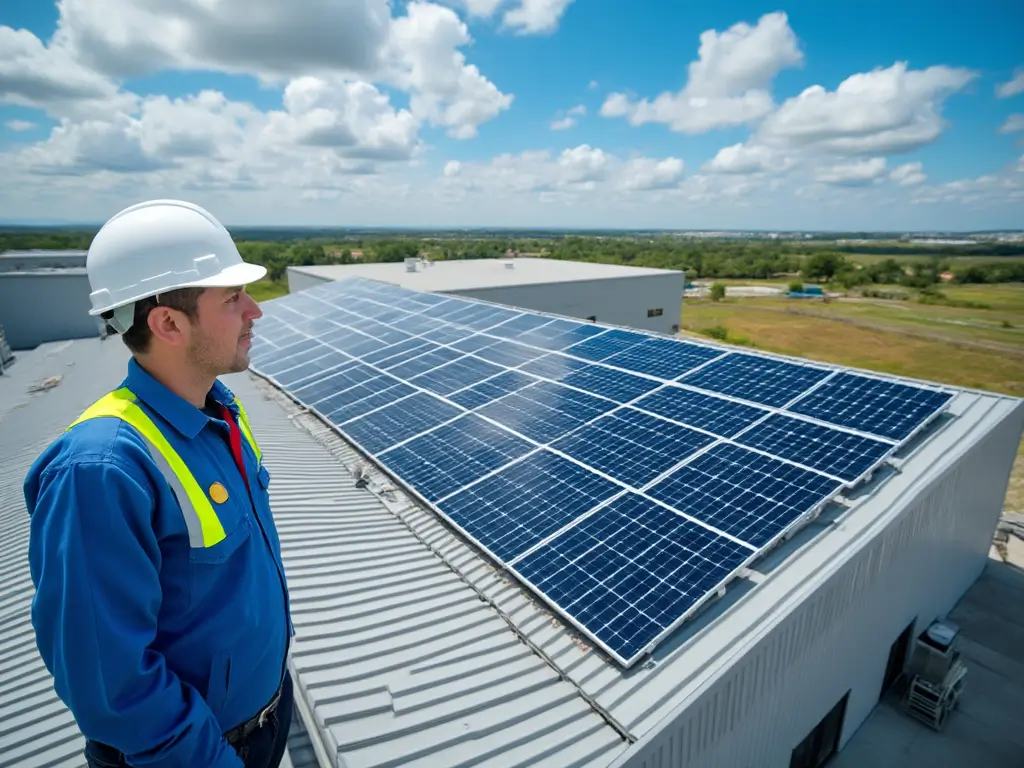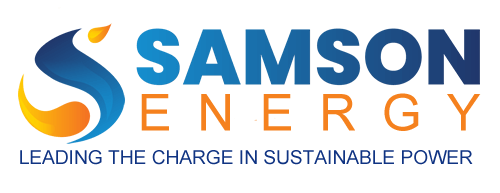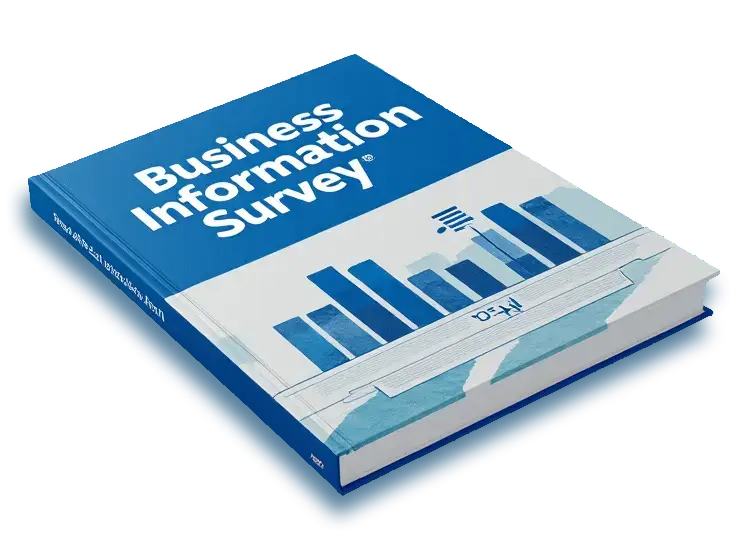Stop Overpaying for Electricity – Here’s the Solution
Tired of Rising Utility Bills Draining Your Profits?
Ready to Achieve Energy Independence?
Complete your business information survey now, and...
Table of Contents
- Introduction
- Pain Questions
- The Struggles of High Utility Bills
- Overcoming Business Challenges with Solar Solutions
- Achieve a 30-Day Transformation with Our Proven Process
- Estimated Electricity Consumption and Costs for Different Industries (2024 – 2030)
- Estimated 3 Phase Solar System Size and Cost
- Solar System Size, Cost, and Monthly Repayments
- Estimated Monthly Bill vs. Loan Repayments
- Guaranteed Performance and Longevity.
- Understanding Your Energy Independence with Solar
- Reviews
- Frequently Asked Questions
- Special Offer
- Inquiries
Questions
Could cutting energy expenses allow you to hire more staff?
Saving on energy costs could free up enough funds to hire 2-3 additional employees, boosting productivity and profits.
How can I cut expenses to save for a Christmas bonus?
If only I could cut the expense. I could save for a Christmas bonus. I could see the pain in my staff’s eyes last year when I told them that we could not afford to pay Christmas bonuses. Hell, we might even be able to have a Festive Season Party.
How are soaring utility bills stifling my business growth?
These soaring utility bills are stifling our growth. I dream of expanding our business, opening new branches, and reaching more customers, but every month, those dreams are crushed by yet another staggering bill.
How are high utility bills affecting my client relations?
I’ve had to turn down projects because we can’t afford the extra electricity costs they would bring. Losing clients because of something so basic feels like a personal failure. It’s like watching opportunities slip through my fingers.
How do high utility bills impact my productivity?
The constant worry about bills affects my focus. I find myself spending hours trying to figure out how to save a few bucks here and there, time that should be spent on innovation and strategy. It’s a daily distraction that drags down productivity.
How are utility costs affecting employee morale?
Every month, I see the disappointment in my employees’ faces when I tell them there’s no budget for raises or bonuses because our utility costs are eating into the profits. Morale is at an all-time low, and it breaks my heart.
Why do I have to make operational cuts because of utility bills?
I’ve had to cut back on essential supplies and services just to pay the utility bills. We’re compromising on quality and efficiency, and it’s only a matter of time before our clients notice. The fear of losing our hard-earned reputation keeps me up at night.
Are high utility bills forcing personal sacrifices?
Many business owners find themselves forgoing salaries or making tough personal sacrifices just to manage utility costs.
Why do high utility bills create financial instability?
The unpredictability of our utility bills makes it impossible to plan for the future. Every month feels like a gamble, and it’s terrifying. How can I commit to long-term investments or improvements when I don’t even know if we’ll break even?
How do high utility bills put us at a competitive disadvantage?
Our competitors with lower operational costs are thriving while we’re barely surviving. I feel like we’re constantly on the back foot, struggling to keep up, let alone get ahead. It’s demoralizing and makes me question if we can ever truly compete.

Energy Independence for Business!
The Struggles of High Utility Bills
Energy Independence for Business in 30 Days!
Overcoming Business Challenges with Solar Solutions
Illuminate Your Business Efficiency
Harness Solar Insights with Our Tailored Survey!
Power Up Your Business with Solar Energy
Discover How Solar Can Fuel Your Business Growth!
Complete Your Business Information Survey!Energy Independence for Business!
Achieve a 30-Day Transformation with Our Proven Process
Step 1: Free Energy Consultation
- Get expert advice on reducing your energy bills.
- We’ll review your current utility usage and identify savings opportunities.
Step 2: Custom Energy Plan
- Receive a customized energy plan tailored to your business needs.
- We’ll recommend the best solutions to reduce costs and improve efficiency.
Step 3: Seamless Installation
- Our experienced team will install your custom solar solution with minimal disruption to your business operations.
Step 4: Monitor and Optimize
- Continuous monitoring to ensure optimal performance.
- Regular updates and adjustments to maximize savings.
Call to Action: Start Your 30-Day Transformation Today

Curious what your future electricity costs could be? (2025 - 2030)
Electricity Cost Calculator (2024-2030)Achieve Energy Independence in 30 Days!
Not sure what size solar system your business needs?
Use this calculator to determine the optimal system size and cost for your specific energy usage.
Let’s break this down step-by-step.
Step 1: Calculate the Required kWh Capacity for 3 Phase Solar Systems
From the table, we’ll use the maximum monthly kWh for each industry. Let’s convert this into daily kWh needs and then into the size of the solar system required.
Step 2: Estimate the Cost of a Complete 3-Phase Solar System
Based on industry data, a typical 3-phase solar system installation cost in South Africa can range from R15,000 to R20,000 per kW. We’ll use R18,000 per kW for our calculations.
Assumptions:
- Cost per kW of solar: R18,000 (3 Phase System)
Calculations
The estimated size and cost of the solar systems required.
3-Phase Solar System Size and Cost Calculator
Note: This calculation assumes:
- 4 kWh production per kW of solar system per day
- R18,000 cost per kW for a 3-phase solar system installation
Actual results may vary based on specific location, equipment, and installation factors.
Achieve Energy Independence in 30 Days!
Calculate Your Monthly Solar Repayments:
Enter the size of the solar system your business requires, and we’ll estimate your monthly repayments for both 5-year and 10-year loan terms.
Using the formula for an annuity to calculate the monthly repayment: [ M = P \times \frac{r(1 + r)^n}{(1 + r)^n – 1} ]
Where:
- ( P ) is the principal loan amount (system cost)
- ( r ) is the monthly interest rate (annual rate / 12)
- ( n ) is the total number of payments (years * 12)
For an annual interest rate of 12%, the monthly interest rate is 1% (0.12 / 12).
Let’s calculate the monthly repayments:
Explanation:
- Estimated System Size (kW): This is the size of the solar system required to meet the maximum monthly consumption for each industry.
- Estimated System Cost (R): This is the estimated cost of installing the solar system, based on R18,000 per kW.
- Monthly Repayment (5 years): This is the estimated monthly repayment for a loan to cover the system cost over 5 years at an annual interest rate of 12%.
- Monthly Repayment (10 years): This is the estimated monthly repayment for a loan to cover the system cost over 10 years at an annual interest rate of 12%.
This breakdown provides a clear picture of the financial impact and potential savings from installing a solar system, taking into account the loan repayment over five and ten years.
Loan Repayment Calculator (ZAR)
This calculator helps you estimate your monthly repayments for a loan in South African Rand (ZAR). Enter the loan amount you're considering, and the calculator will show you the monthly repayments for both a 5-year and a 10-year term, based on a fixed annual interest rate of 12%.
Achieve Energy Independence in 30 Days!
Compare your current utility bills with your potential solar loan repayments. (5 Years)
Over time, as electricity rates increase, your solar investment can save you more each month.
Notes:
- The monthly electricity costs for 2025, 2027, and 2030 are calculated using the per kWh rates we determined earlier.
- The monthly loan repayment amounts are for a 5-year loan term at 12% interest, which remains constant across the years.
- This shows the trade-off between paying the monthly electricity bill from the utility versus the loan repayment for the solar system installation.
Over time, as electricity rates increase, the solar system becomes more favorable from a monthly cash flow perspective compared to paying utility bills.
Estimated Monthly Bill vs Loan Repayments (5 Years)
Compare your estimated monthly electricity bills with solar system loan repayments over 5 years.
Comparison Results:
| Year | Monthly Electricity Bill (R) | Monthly Loan Repayment (R) |
|---|---|---|
| 2024 | R | R |
| 2025 | R | |
| 2027 | R | |
| 2030 | R |
Note: Loan repayment is calculated for a 5-year term at 12% interest.
Note: Once the solar system loan is fully paid off, the electricity generated from the solar system/battery backup will be free, except for occasional maintenance fees.
Compare your current utility bills with your potential solar loan repayments. (10 Years)
As electricity rates continue to rise, your monthly solar loan repayments could be lower than your energy bills, giving you more predictable and favorable cash flow.
Estimated Monthly Bill vs Loan Repayments (10 Years)
Compare your estimated monthly electricity bills with solar system loan repayments over 10 years.
Comparison Results:
| Year | Monthly Electricity Bill (R) | Monthly Loan Repayment (R) |
|---|---|---|
| 2024 | R | R |
| 2025 | R | |
| 2027 | R | |
| 2030 | R |
Note: Loan repayment is calculated for a 10-year term at 12% interest.
Note: Once the solar system loan is fully paid off, the electricity generated from the solar system/battery backup will be free, except for occasional maintenance fees.
Illuminate Your Business Efficiency
Harness Solar Insights with Our Tailored Survey!
Power Up Your Business with Solar Energy
Discover How Solar Can Fuel Your Business Growth!
Complete Your Business Information Survey!Achieve Energy Independence in 30 Days!
Guaranteed Performance and Longevity
Introduction
Investing in a solar system is a long-term commitment. That’s why we provide industry-leading guarantees on key components like inverters, batteries, and solar panels to ensure your system performs reliably for years to come.
Quality inverters, batteries, and solar panels come with robust guarantees to ensure long-term performance and peace of mind. Here’s a breakdown of what you can expect from reliable, professionally installed systems.
Inverters
As the heart of your solar power system, inverters convert the energy from your solar panels into usable electricity.
Our high-quality inverters come with a 10-year manufacturing guarantee, ensuring dependable performance
Solar Panels
Our premium solar panels come with up to a 25-year performance guarantee, ensuring that your system will continue to generate energy efficiently for decades.
The performance warranty guarantees that the panels will produce a certain percentage of their rated capacity (often 80-90%) over 25 years, while the product warranty covers any defects in materials and workmanship.
Solar Batteries
Our solar batteries, which store excess energy for use during peak hours or power outages, come with a 10-year guarantee, giving your business reliable backup power.
Conclusion
By choosing a reliable and professionally installed solar system, you can expect robust guarantees and warranties on your inverters, batteries, and solar panels. These guarantees ensure that the general numbers and savings outlined in the previous sections can be achieved, providing you with a dependable and long-term energy solution for your business.

Achieve Energy Independence in 30 Days!
Understanding Your Energy Independence with Solar
Introduction
Investing in a complete solar system with battery backup can significantly reduce your dependency on the grid. Once your solar system is paid off, you won’t pay for the electricity generated by your solar panels. However, you might incur a connection fee from utility companies for remaining connected to the grid. This setup ensures you have a reliable backup and can lead to substantial long-term savings.
Key Points:
-
Complete Solar System with Battery Backup:
- A complete solar system with battery backup can allow a business to be largely independent of the grid.
- Batteries store excess solar power generated during the day for use at night or during cloudy periods.
-
No Utility Costs:
- Once the solar system is paid off, you typically don’t pay for the electricity generated by your solar panels.
- This can lead to significant savings over time.
-
Grid Connection Fees:
- Even if you’re mostly independent of the grid, you might still be connected for backup purposes.
- Utility companies often charge a connection fee or penalty for being connected to the grid, even if you don’t use their electricity regularly.
Considerations:
- Initial Investment: The initial cost for a complete solar system and battery backup can be high.
- Maintenance Costs: Although there are no utility costs for the electricity generated, there might be maintenance costs associated with the solar system and batteries.
- Grid as Backup: Having a grid connection provides a reliable backup in case of prolonged cloudy periods or unexpected high energy demands.
Conclusion
Offering a complete solar system with battery backup can help businesses reduce their dependency on the grid and potentially eliminate utility costs after the system is paid off. However, it’s important to factor in initial investment, maintenance costs, and any grid connection fees when planning the system.

Reviews
Frequently Asked Questions
What are the upfront costs of installing a solar system for my business?
The initial investment for a commercial solar system can be significant, but it’s important to consider the long-term savings and return on investment.
The upfront costs typically include the solar panels, inverters, lithium-Ion Battery Packs, racking systems, installation labor, and any necessary electrical upgrades.
However, there are various financing options available, such as solar loans, leases, and power purchase agreements (PPAs), which can help make the upfront costs more manageable.
Additionally, tax credits, rebates, and incentives for businesses that invest in solar energy, further reducing the overall cost.
How long will it take to recoup the investment through energy savings?
The payback period for a commercial solar system can vary depending on factors such as the size of the system, your location, energy consumption patterns, and the available incentives.
Typically, businesses can expect to recoup their investment within 5 to 10 years, after which they will continue to enjoy free electricity for the remaining 15-20 years of the system’s lifespan.
The exact payback period for your business can be calculated based on your specific energy needs and system specifications.
Will a solar system increase the value of my commercial property?
Yes, installing a solar energy system can significantly increase the value of your commercial property. Studies have shown that properties with solar installations tend to sell faster and at higher prices compared to similar non-solar properties.
Additionally, many commercial tenants and buyers are increasingly seeking energy-efficient and sustainable properties, which can give you a competitive advantage in the market.
How reliable and efficient are modern solar panels?
Modern solar panels are highly reliable and efficient, with most manufacturers offering performance guarantees of up to 25 years.
The technology has advanced significantly in recent years, with panels capable of converting a higher percentage of sunlight into electricity. Additionally, solar panels require minimal maintenance and can withstand harsh weather conditions, ensuring consistent energy production for decades.
What happens on cloudy days or during periods of low sunlight?
Solar panels can still generate electricity on cloudy days, although the output will be lower than on sunny days.
Additionally, most commercial solar systems include inverters and net metering capabilities, which allow you to draw electricity from the grid when your solar production is low and sell excess energy back to the utility when your production is high.
This ensures a consistent and reliable supply of electricity for your business.
Can a solar system meet all of my business's energy needs?
The size of the solar system you install will determine how much of your energy needs it can meet.
Typically, commercial solar systems are designed to offset a significant portion of your energy consumption, often ranging from 50% to 100%.
If you have additional energy needs, you can supplement your solar system with grid electricity or consider adding battery storage to store excess solar energy for later use.
How much maintenance is required for a commercial solar system?
Commercial solar systems require minimal maintenance, which can be a significant advantage for businesses.
The panels themselves are designed to be durable and require occasional cleaning to ensure optimal performance.
The inverters and other components may need periodic inspection and maintenance, but this is typically handled by the solar company or a professional service provider.
Will a solar system affect the aesthetics of my commercial property?
Modern solar panel designs have come a long way, and many commercial solar installations can be integrated seamlessly into the existing architecture and aesthetics of a property.
Solar panels can be mounted on rooftops, carports, or ground-mounted in a way that complements the overall look and feel of your business.
Additionally, some solar companies offer customized solutions to ensure the system blends in with your property’s design.
What happens if I need to relocate or sell my business in the future?
If you need to relocate or sell your business, the solar system can either be transferred to the new property or added to the sale of your existing property.
In many cases, having a solar system installed can increase the value and appeal of your commercial property, making it more attractive to potential buyers.
How can I ensure the solar company I choose is reputable and reliable?
When selecting a solar company for your commercial installation, it’s essential to do your due diligence.
Look for companies with a proven track record, positive customer reviews, and appropriate licensing and certifications.
Additionally, ensure they offer comprehensive warranties and guarantees on their products and workmanship. It’s also advisable to request references and ask about their experience with commercial solar projects similar to yours.

